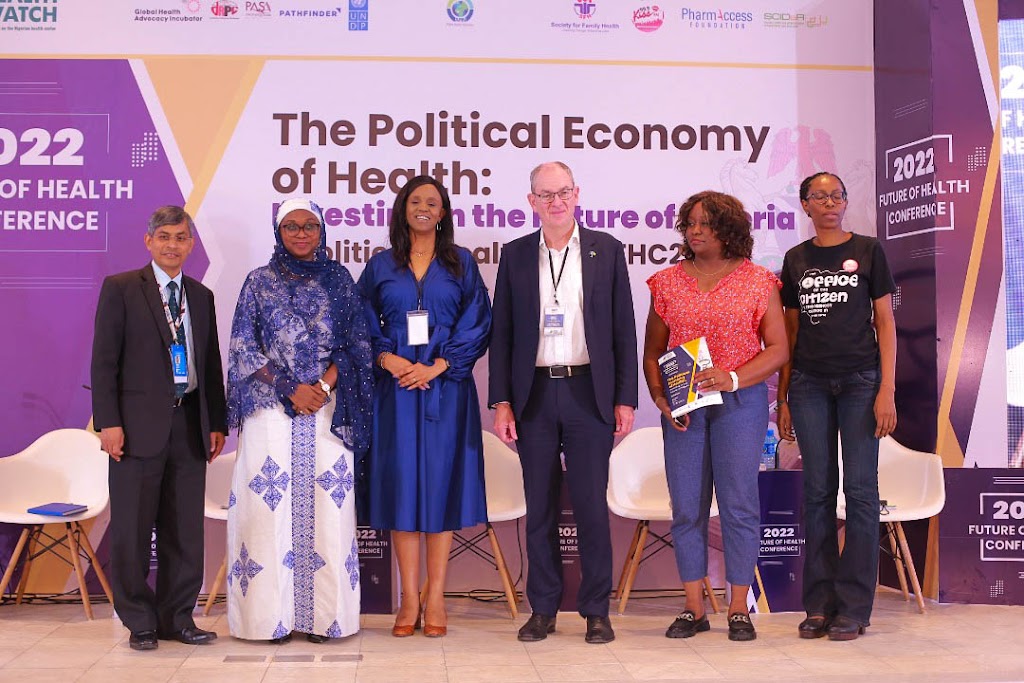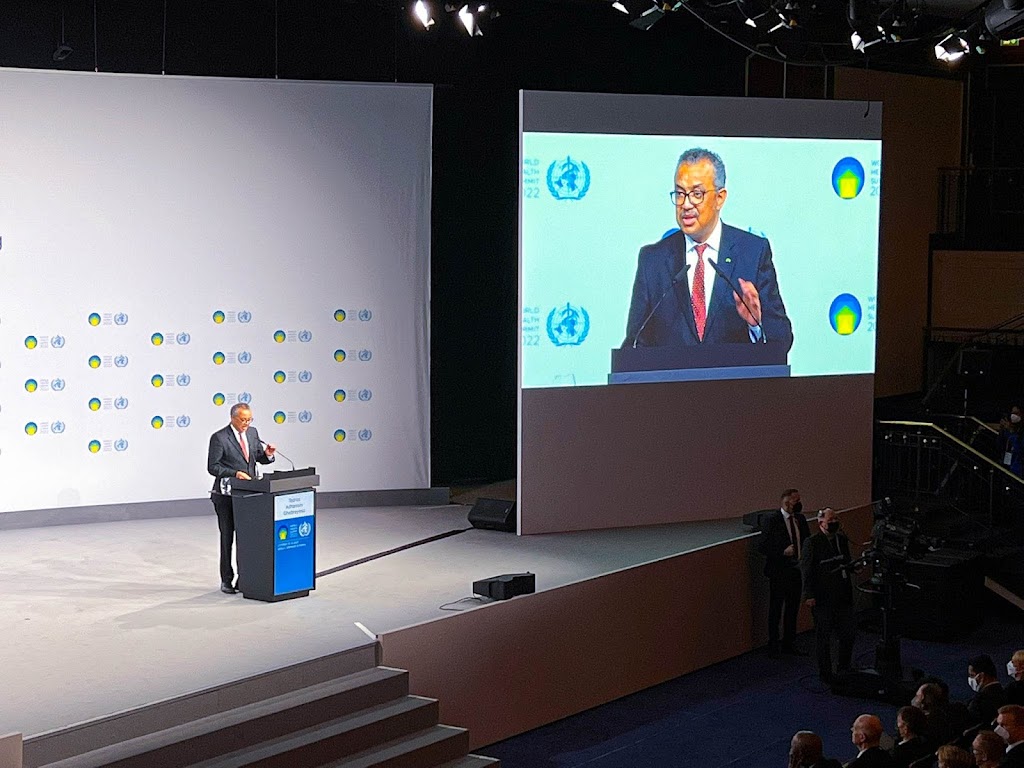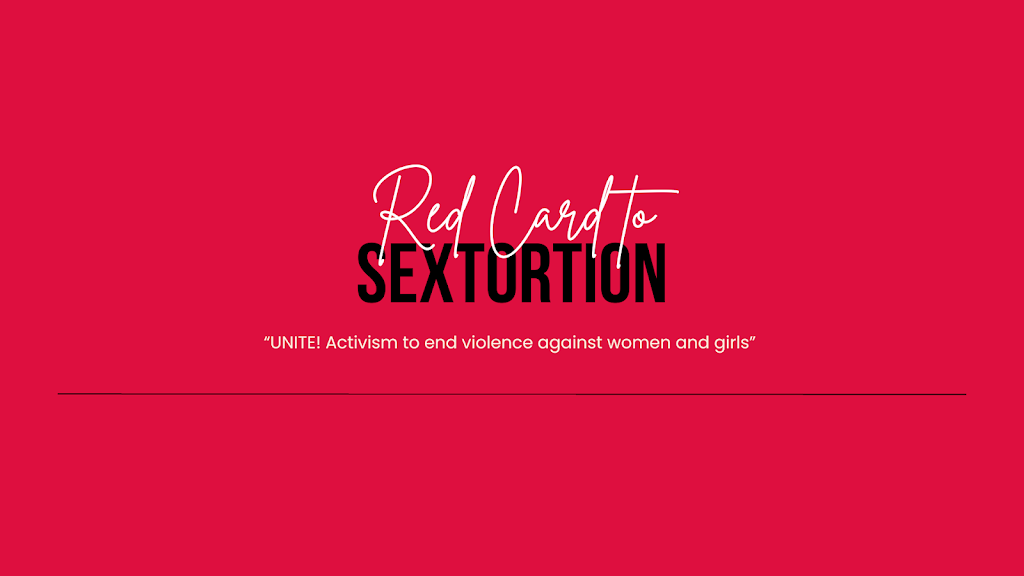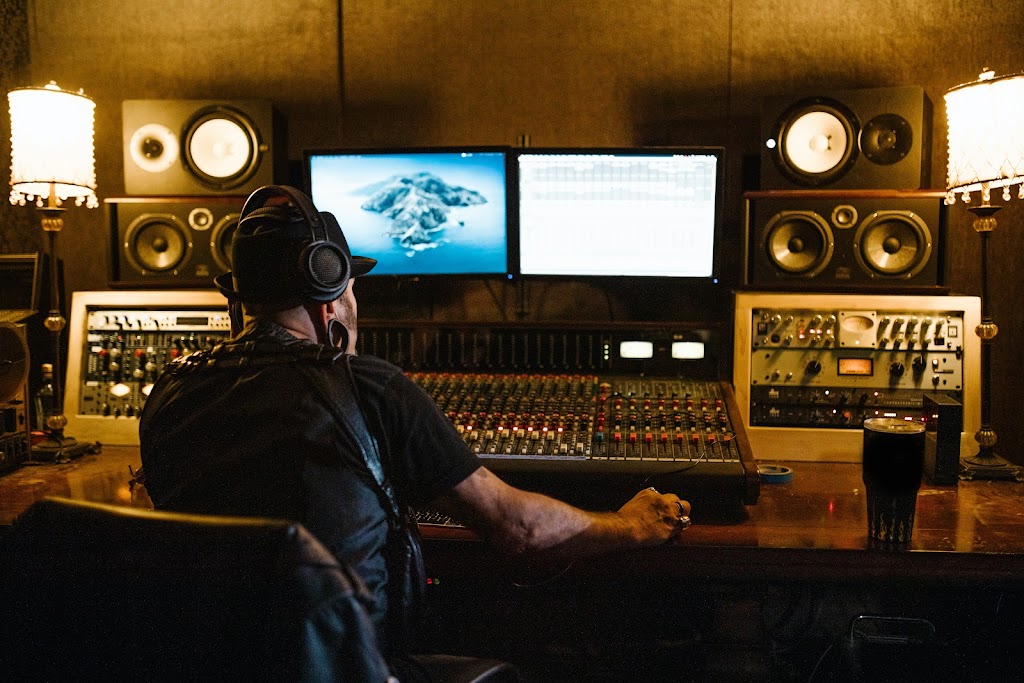Killing Me Softly…With Your Words

Photo by Tima Miroshnichenko on Pexels by Grace Anaja Verbal abuse is one of the major forms of abuse that is less spoken about or addressed. It is pretty detrimental because it usually affects individuals emotionally and psychologically.Many people need help understanding how to communicate their feelings in words. They need to understand that what is said is usually less important than how it is said. You might not want to intentionally hurt another person, but when you do not adequately process what you want and the best way to say it, you just might. It is also possible that you were misunderstood and your intentions were not adequately communicated. Communication, however, only happens when the intent of the speaker is received as such and understood from the message (whatever that may be) by the listener. This applies to written communication as well. However, this cannot be compared to verbally abusing someone: a constant, deliberate, and intentional attack on another’s emotions. It could be belittling a person, their work or effort (whether privately or with an audience); ridicule and embarrassment; threats; saying terrible things about a person’s loved ones, background, or orientation; targeted statements at a person’s social status, color (even within the same race), beliefs, ethnicity, body type, or disability. Sexual harassment in the form of comments or inappropriate jokes, sexual objectification, etc., is seen as verbal abuse too. Verbal abuse could be done by anyone: a partner, friend, sibling, parent, classmate, leader, boss, or co-worker. Even words and statements we think might not mean much – ‘idiot,’ ‘stupid’, ‘mumu’, ‘you no get sense‘ – may have such an immense impact on people. Imagine a friend always putting down another friend, a partner telling the other ‘you are worthless’, or a teacher calling a pupil ‘olodo‘ and the other pupils joining in. There is this story – a true life experience – of a young boy of 12 who attempted to commit suicide in school by jumping off the rooftop and was saved by a teacher who was passing by. When asked why he tried to take his life, he said his mother told him repeatedly that he would never amount to anything in life, and he believed it. So he felt there was nothing to live for. Emotional blackmail can occur through verbal abuse, as oftentimes, blackmailers use words to manipulate the victims by blaming or threatening them to control their actions or behavior. Abusers can also prey on people’s kindness or sympathy. Let us not forget social media, where individuals barge into ‘DMs’ and storm people’s pages and handles with demeaning comments and insults in the name of ‘freedom of speech and expression’ and ‘I like to speak my mind’. Or clout-chasing individuals, websites, and blogs that spread lies and rumors about other people. Some of these expressions are offshoots of frustration, hurt, and pain that usually have nothing to do with the abused person. As is said, ‘hurt people… hurt people’. Many people today need to go through a healing process: emotionally and psychologically, and from past hurts, current some, come disappointments and challenges, and an uncertain future. There are those who come from dysfunctional families, friendships, and relationships. Many just need to better understand how to communicate, especially with heightened emotions of anger, pain, or frustration and learn to respond and not react. Some would want to form ‘jagaban‘, ‘hard guy‘, who claim they are not affected by these things, and those who truly are not as emotional as others. But words are words, and words are indeed powerful. They might not affect you immediately, but they definitely will, especially when that annoying little negative voice in your head comes around. So, love and appreciate yourself. You can only love others if you first love yourself. If you have been hurt in the past, start your healing process now and deal with it. Understand what communication really is. It is a skill. Learn it and learn emotional intelligence, so you properly handle your emotions. And, of course, if you do not have anything good or beneficial to say to someone, don’t say anything at all. This does not rule out constructive criticism: emphasis on constructive.
Cheating (vrb). Women (n).

Photo by Ogo on Pexels Men cheat. And yes, women also cheat. It is not strange, yet… people raise their brows when they hear that a woman cheated. It is even believed that women cheat more than men and that it is a well-kept secret. They just don’t want to accept it or talk about it. Society expects men to cheat. People claim it is ‘natural’ for men to want to explore. They have sexual urges that need to be quenched. But women are also sexual beings. They have desires and want to explore as well. People do not want to think about women as sexual beings or as being sexually active and having multiple partners. Relationship experts say the motivation for both genders differs. “Men desire more sex or attention while women desire to fill an emotional…emptiness”. Both men and women, however, are sexual and emotional beings and men also have emotional voids they try to fill differently. A friend once told me about a traditional belief from a particular tribe in North Central Nigeria. The idea was that any married woman who cheats on her husband would die. She claimed she had seen it happen. I asked what penalty befell a cheating husband, and she said none. I was dazed. I will not wholly cast off these beliefs as a Nigerian and African. But then I wonder…the spirit or spirits behind this belief must be quite biased – and wicked if you ask me – to punish only women and not men for adultery. I believe that certain traditional and cultural beliefs are created by men to relegate and subjugate women and keep them in check. Another incident is of a woman narrating her ordeal during an interview. Her husband suspected she was having extramarital affairs because he saw a man at her business center. He reported her to the elders in the community and, since he didn’t have any evidence, insisted that she eats a fowl uncooked with its blood and feathers, and if she didn’t die within a year, she was innocent. This is one of the many sacrilegious practices in Nigerian and African societies. I recently read an article about a ceremony in a village in Rivers State where young girls are given certificates of womanhood for being virgins. This involved being ‘checked’ by older women in the community. Virginity before marriage is expected of a woman, while it is considered a plus for a man. Sadly, many women proliferate this idea. There is this silly expectation that if a man wants to be with you, he has other women on the side, ‘side chicks’ as they are called, and you should be grateful that he picked you out of the lot. If men are okay to cheat, then people should accept cheating women. Cheating is unique to relationships and individuals, not genders. Individuals in relationships who consciously decide to be together should be committed to one another.
The Future of Health Conference: Investing in Nigeria’s Future

Group photo after the second-panel session at the Future of Health Conference in Abuja.Image Credit: Nigeria Health Watch by Adetayo Adetokun The Future of Health Conference is an annual conference hosted by Nigeria Health Watch. The conference aims to provide a visible platform for critical stakeholders in healthcare, finance, politics, and other allied sectors to discuss the factors that influence Nigeria’s health policies; how political, social, and economic factors shape individual and population health outcomes; health service development within the economic and political context; and how to create a national health service that meets the needs of all Nigerians. The 2022 theme was “The Political Economy of Health: Investing in Nigeria’s Future”. We attended the conference and shared crucial discussions about health and the investments in this sector that are required to improve the overall health, well-being, and productivity of Nigerians. We believe that healthcare is a human right, and everyone should have access to good healthcare and universal coverage. We also recognize the role good healthcare plays in the development of African communities. The government of every country has a huge role to play in ensuring that every citizen of their country has access to good healthcare. This conference allowed us to improve our knowledge of ways to reduce the number of deaths in the communities that are hardly reached with quality and sustainable healthcare. This conference also spotlighted one of the main issues we are committed to ending – maternal and pediatric health. In many communities, women and children are often at the bottom of the economic chain, and it is difficult for them to access the healthcare services they require. There were so many moments at the conference that resonated with our work and the actions we hoped to take. Welcome Address Vivianne Ihekweazu, Managing Director of Nigeria Health WatchImage Credit: Nigeria Health Watch The welcome address was delivered by Vivianne Ihekweazu, the Managing Director of Nigeria Health Watch. In her address, she stated that the Future of Health conference was started to reinforce the importance of universal health coverage. She mentioned the importance of government and political leaders’ intervention in the healthcare ecosystem. She reminded citizens that we are saddled with the responsibility of ensuring our political leaders are held accountable for the availability of healthcare infrastructure and its proper management. Keynote Speech Professor Olumide Ayodele during his keynote speech.Image Credit: Nigeria Health Watch The keynote speech was delivered by Professor Olumide Ayodele on behalf of Ben Akawueze, the Managing Director of the Budget Office of the Federal Government of Nigeria. He spoke about the importance of monitoring the financial expenditure allocated to each government project. “It is not the amount of money that is being spent. But, its impact”, he said. He expounded on the importance of advocacy in the healthcare financing sector and why we need more people to look into how budgets are allocated and utilized. On healthcare financing, he emphasized that it is the responsibility of both government and sub-national entities to ensure that healthcare is financed, as the government can only finance some of the healthcare projects due to the low revenue generated. After this keynote session, there were three-panel sessions: The Economy of Health — the economic cost of poor health prioritization and the economic benefits of prioritizing health Politics and Health — charting a course of action to set Nigeria on course for achieving UHC. Political Leadership in Health — the impact of leadership on healthcare at the sub-national level. First-panel session: The Economy of Health — the economic cost of poor health prioritization and the economic benefits of prioritizing health. The first-panel session had Prof. Obinna Onwujekwe, a Member of the European Commission-funded Eval-Health project fr. Sarah Alade, Special Adviser to the Nigerian President on Finance and Economy; Dr. Onoriode Ezire, Se; or Health Specialist, at World Bank Nigeria; Dr. Ola Brown, Founder, Flying Doctors Incorporated; and Dr. Habib Sadauki, National President, Society of Gynaecology and Obstetrics, Nigeria. Dr. Ola Brown making her points during the first-panel session.Image Credit: Nigeria Health Watch Dr. Ola Brown spoke about why young people leave the country in their thousands. She said the lack of good healthcare infrastructure and viable opportunities, as well as the persistent insecurity in the country, were some of the reasons young people left the country. She believes that when healthcare problems in Nigeria are solved, all other problems will be easily solved. Dr. Sarah Alade making her points during the first-panel session.Image Credit: Nigeria Health Watch Dr. Sarah Alade pointed out that healthcare is a pillar for development in every country, and we cannot mention healthcare without considering sustainable development goals. She hopes the government and private entities will continue to donate to healthcare development in the coming years. Dr. Habib Sadauki sharing his thoughts during the first-panel session.Image Credit: Nigeria Health Watch Dr. Habib Sadauki articulated the importance of investing in family planning and women’s health in general. He said that the low rate of accessibility to family planning for Nigerian women has affected our economy greatly as many families continue to give birth to more children than they can cater for. “For every dollar invested in family planning, there is a return of three dollars.” This has been proven across many countries and regions. Dr. Onoriode Ezire sharing his thoughts during the first-panel session.Image Credit: Nigeria Health Watch Dr. Onoriode Ezire called the audience to reflect on the deplorable state of healthcare in Nigeria. He said the reason we have very terrible healthcare can easily be traced to the low Gross Domestic Product in Nigeria, which is one of the lowest in Africa. “Due to this low GDP, Nigeria has one of the highest mortality rates in Africa.” He emphasized that the best way to improve healthcare in Nigeria is to ensure that all hands are on deck. Prof. Obinna Onwujekwe sharing his thoughts during the first-panel session.Image Credit: Nigeria Health Watch Prof. Obinna Onwujekwe spoke about the importance of an immaculate system of governance where everything is plain and fair so citizens can adequately monitor the activities of the government and
Lessons from the 2022 World Health Summit

General Tedros Adhanom Ghebreyesus, Director, World Health Organization by Adetayo Adetokun We attended the World Health Summit from October 16 – 18, 2022, and had insightful takeaways, especially from the sessions curated for African healthcare and food systems. The World Health Summit (WHS) 2022, organized jointly with the World Health Organization (WHO) for the first time, is considered the world’s leading meeting on global health. Held under the patronage of German Federal Chancellor Olaf Scholz, French President Emmanuel Macron, Senegal’s President Macky Sall, and WHO Director-General Tedros Adhanom Ghebreyesus, WHS 2022 aimed to stimulate innovative solutions to health challenges, foster global health as a critical political issue and promote a global health conversation in the spirit of the UN Sustainable Development Goals. The health systems in many communities in Africa are vastly inadequate today. Since the pandemic began, it has become increasingly obvious that our health systems have further disintegrated, with barely any systems in place to check this rot. The COVID-19 pandemic, which claimed the lives of nearly 80 million people worldwide, further showed how vulnerable our healthcare systems are. Our governments have yet to make the investments in our healthcare systems that would provide the requisite knowledge to improve or even manage the sector. As a result, millions of people who got the COVID-19 virus could not be saved, worsening the social contract between governments and their citizens. Almost all funds we received – whether for research, vaccination, or other health service delivery components – came from nations and organizations who have made these investments in their health systems and could afford to share their excess. We believe every neighbourhood, state, and nation across Africa should have effective and efficient healthcare systems. As more advocates begin to hold the government accountable, we are starting to witness a gradual transformation of the healthcare systems in Africa. At the summit, we attended two main sessions organized for Africa: The Road to 2023: Are we Achieving Universal Health Coverage? Transforming Food Systems for Healthy and Sustainable Diets Here are some of the excellent lessons we learned from these sessions. First Panel Session: The Road to 2023: Are we Achieving Universal Health Coverage? The speakers in this session included: Sandrine Bouttier-Stref, Global Head of Corporate Social Responsibility Sanoli; Alison Cox, Policy and Advocacy Director, Non-Communicable Diseases Alliance; Gabriela Cuevas Barrón, Universal Healthcare Coverage 2030, Co-Chair of the Steering Committee; Loyce Pace, U.S. Department of Health and Human Services (HHS), Assistant Secretary for Global Public Affairs; Dr. Luis Pizarro, Executive Director at Drugs for Neglected Diseases initiative (DNDi); and Dr. Peter Kwame Yeboah, Executive Director, Christian Health Association of Ghana. In this session, we learned that global health, numerous collaborations between product development partnerships and the pharmaceutical industry multilateral partnerships have already demonstrated the important role in driving access to healthcare in multiple low- to middle-income countries and across the most affected vulnerable populations. While it is clear that partnerships can result in significant benefits, challenging questions remain open. It showed us a clear road map to foster robust and sustainable collaborations that must be urgently developed to close the access gap and put us on the path to a world where equal access to quality health care is ensured for everybody. According to Gabriella Cuevas Barron, it took a pandemic that claimed the lives of more than six million people to realize how shaky the global healthcare system was. Although it may seem challenging, achieving universal healthcare coverage would be much simpler if monies were properly financed and monitored as they were used to develop the healthcare system. To ensure that nobody is left behind, we must include women and girls in these decisions. Peter Kwame Yeboah discussed the situation in Ghana and how they dealt with the recent healthcare crisis. In the last few years, religious and humanitarian organizations have assumed control of healthcare to improve coverage. In contrast to government-owned hospitals, they are nonetheless marginalized and subjected to extremely high standards, making them unable to perform as they should. To stop this, they must make sure that these partnerships are restructured. These selective regulations have made it difficult for these hospitals to operate. According to Luis Pizarro, it is crucial for every nation to be aware of the number of neglected diseases it has, particularly those in Africa. It is clear that several diseases impact millions of individuals, but because they reside in underprivileged areas, little attention is paid to them, and no solutions are explored. Ideas are excellent, but they need great finance to take flight. Thus nations seeking to attain universal healthcare coverage by 2030 must start providing funds for outstanding ideas. In her address, Alison Cox stated that 80% of current fatalities are brought on by Non-Communicable diseases (NCDs) and that this number might increase to 52 million in the upcoming year. Only 1% of individuals with NCDs have access to effective therapies. Since millions of people worldwide suffer from numerous chronic and lifelong diseases, most of which are chronic and lifelong, partnerships are crucial to addressing the NCD problem. We require funding from a variety of sources, including private organizations and individual donors to NCD funds. Regarding equity, she emphasized its significance. To eradicate NCDs, we must begin with the most disadvantaged populations. The significance of the pharmaceutical industry in assisting with the attainment of universal healthcare coverage was discussed by Sandrine Boutlier-Stref. The importance of understanding how these sectors contribute to making pharmaceuticals more accessible to people all around the world cannot be overstated. To reach a compromise where innovations are produced to address urgent problems, the government and the business sector must cooperate. Loyce Pace spoke on empowering healthcare professionals. Everyone who works in the healthcare industry needs to be given a chance to express themselves and complete their tasks in a calm setting that supports them. When we accomplish this, we’ll be able to gauge our readiness to meet the 2030 goal of universal healthcare coverage. Second Panel Session: Transforming Food Systems
‘Rape for Grades’

Photo by Charlotte May on Pexels by Grace Anaja Rape for grades is a well-known phenomenon. It involves dangling academic grades in exchange for sexual favors. Even if one party – in this case, the students – consents to trade sexual favors for improved grades, the power dynamics between the school’s employee and the student means that one cannot consent without the niggling fear that their refusal may mean failure. Thus, it is considered rape. This is a condemnable act prevalent in many universities in Nigeria – public and private alike – and worldwide. It seems to happen more in public universities, I believe, because certain lecturers feel they are doing you a favor by teaching you, and as such, you should give them something in return: money, gifts, or worse, sex. Some ask subtly with the guise of offering help, friendship, or extra support. Others demand it and expect no questions asked. A study by United Nations Educational, Scientific and Cultural Organization (UNESCO) reveals this form of Sexual and Gender-Based Violence against female students could result in outcomes ranging from shame, loss of self-esteem, unwanted pregnancies, poor academic performance, and in some extreme cases, suicide. Since there is a lack of trust in the system, sexual harassment and rape cases in universities are not reported because victims are not believed. They fear negative consequences even from other lecturers or perpetrators who are not sanctioned. This begs the question: why do these lecturers demand sex from female students? It is safe to say that some of these men are married and have children, some of whom are peers of the female students they prey on. Why is it important for them to abuse the power they are given? I wonder… if their daughters came home with stories of being raped by a lecturer for grades, what would their response be? One very flimsy excuse given as a cause is that some female students dress ‘indecently’ on the campus and that men already struggle to control their sexual urges and so might not be able to resist going after these girls. Many tertiary institutions have dress codes that students abide by. Often male and female students are inspected at the gates and halls of residence for ‘improper’ dressing. Whether a student was wearing the long flowing abaya or a strapless cropped top and mini skirt, it does not give any man, staff, or student alike the right to harass or assault her. The problem is not with female students – what they wear, do, or say. The problem lies with perpetrators of sexual abuse, these male lecturers. After all, not all lecturers do it. So how do some uphold the ethics of their profession, and others disregard them? Another excuse is that female students who do not study hard become vulnerable to these lecturers. Doing well in assignments, tests, and exams and attending classes reduces one’s chances of being harassed. Yet, there are many cases of lecturers intimidating the ‘most intelligent’ female students. These randy men see these students as sex objects, nothing more. It is no wonder the release of the BBC Africa Eye documentary Sex for Grades in 2019 sparked a lot of response, protest, and action. Reporter Kiki Mordi and other journalists went undercover as students in Nigerian and Ghanaian universities to reveal the rate of sexual harassment by lecturers. Through their secret recordings over three months, they exposed professors and senior lecturers and caught them on camera grooming and seducing female students. Although it inspired national action by the Nigerian senate as it reintroduced legislation that would criminalize sexual advances by lecturers toward students and mandatory jail time for lecturers found guilty of sexual harassment, rape for grades is still on the rise in many universities. There are also cases of students deliberately setting up lecturers. I remember a life experience one of my lecturers told us that happened at a private university. Some students felt a particular male lecturer was too ‘wicked’ and harsh and decided to teach him a lesson as a class. Their plan involved having one of their mates, a lady, enter his office when no one was around, scream, and pretend to have been assaulted by him, with incriminating evidence alongside. Sadly, the plan worked, and the lecturer was reprimanded. When the truth came out, his reputation and career were destroyed. It was too late. As I remember this story, Kunle Afolayan’s Citation comes to mind, especially in the beginning part of the film, where a lecturer was set up by some students, and in the process of being exposed, he was killed and hit by an oncoming vehicle. However, this does not rule out the existence of willful sexual relationships between students and lecturers. There have been cases where lecturers married their students. But this is not what I am making reference to. I’m referring to female students offering sex willfully to male lecturers for grades and, interestingly, other things. Of course, some reject these advances, and others why universities should implement more policies to take advantage of them. Again, the problem is not with the profession but with the individual. As such, more policies should be implemented by universities to curb this global issue. Defaulting lecturers should be seen and severely dealt with as any other sex offender. No lecturer should be a ‘god’ in the institution. More safe spaces should be created for students and lecturers to report such incidents. Any form of harassment should be treated as what it is, an unlawful act. Universities are institutions of learning and development and, therefore, should remain so.
Red Card to ‘Sextortion’

By Grace Anaja We attended the RedCard2Sextortion Campaign launch and panel discussion organized by Devatop Centre for Africa Development and supported by the United States Embassy in Nigeria on December 9, 2022, at the Raw Materials and Research and Development Council, Abuja. The discussions aimed to highlight and address sexual violence to commemorate the 16 Days of Activism against Gender-Based Violence (GBV). Devatop Centre for Africa Development is a youth-led nonprofit organization that focuses on combating and preventing human trafficking, empowering women and youths, and educational transformation. Sextortion is coined from the words ‘sex’ and ‘extortion’, which usually occurs between an individual of higher authority coercing another from a lower cadre, demanding sexual favors. It is multidimensional as it occurs physically and online and cuts across various demographics: age, status, class, etc. Sextortion can also be in the form of cyber crimes like blackmail and threats by posting individuals’ private content, such as nude images, online for a fee. The forum was also an opportunity to commemorate International Anti–Corruption Day, which takes place on December 9 every year, as sextortion is a form of corruption. In his opening address, the Executive Director of Devatop, Joseph Chidiebere Osuigwe, sees sextortion as a hidden pandemic in the educational, religious, corporate, and non-corporate systems. He spoke about the varying forms of sextortion: in the educational system, it is termed sex for grades or admission; in the religious system, it is sex for deliverance, prayer, or breakthrough; in the corporate world, it is sex for promotion or employment; in the banking and finance sector, it is sex for investment, and so on. He reiterated the need to create awareness and combat the issue. Julie McKay, the representative of the United States Embassy, gave her remark and renewed the United States’ commitment to end GBV as online sexual harassment and exploitation are criminal offenses, and perpetrators use fraud, force, and coercion. She spoke about educating people, especially minors, about online sexual exploitation and abuse and showing compassion for victims. She urged everyone to increase the momentum towards ending GBV. There was a video report of the TALKAM project, a technology-driven program that was created to encourage individuals and critical stakeholders to speak up to end GBV, forestall human trafficking, and prosecute human rights violators. The project began in Kaduna, Niger, and the Federal Capital Territory in Nigeria to address all forms of gender-based violence – physical, sexual, psychological abuse, and economic isolation – through various approaches such as weekly radio programs, social media awareness, skit production, debates, video competitions and more. The project is in its fourth phase, which features an internship program involving teachers, youth, community leaders, women leaders, Civil Society Organizations (CSOs), etc., who were trained as advocates to orient and empower women against GBV and human trafficking at the grassroots level and beyond. From a legal angle, the Violence Against Persons (Prohibition) Act 2015 is a provision in the constitution to address the exploitation of individuals and prohibit all forms of violence. However, significant hindrances to ending GBV are the fact that certain provisions are not included in the act, the delay in passing the Sex-for-Grades bill into law, and the failure to provide safe spaces for victims and survivors to speak up. In the corporate world, every organization must implement policies against sexual harassment and sexual abuse. These policies can only be implemented in formalized settings. Some of the biggest perpetrators and most significant enablers of sextortion include the culture of silence and inadequate frameworks for prosecuting offenders. Survivors are afraid of the backlash from society in the form of victim shaming and victim blaming, which further emboldens perpetrators and family members who believe speaking up would lead to a scandal for the victim and the family. African society is highly patriarchal in nature, and this is ingrained in our culture and religion. Some sexual harassment policies are ineffective, and enough awareness has not been created in tertiary institutions. There is no specific law that criminalizes sexual harassment in universities. With the involvement of relevant stakeholders, possible solutions can be applied, such as providing mechanisms within schools to punish perpetrators and psychological support for survivors. Institutions should have specific policies and legal frameworks to address sextortion. Social media campaigns help to create more awareness about sextortion and technological innovations, especially mobile applications that are available for reporting cases of sexual harassment, as well as safe spaces to engage in conversations surrounding this issue. Avenues should be created in religious spaces to create awareness. Provisions should be made to avoid the re-victimization of individuals by lecturers or other staff in institutions and organizations. Parents should also be involved in the awareness processes and childcare service providers for those with disabilities and anyone vulnerable. The war against GBV in the form of sextortion is still ongoing, and through more concerted efforts, we can win this fight. It is possible. Cross-section of Panelists at the Red Card to Sextortion Event
Spotlighting NGOs Working to Help Survivors of Gender-Based Violence

Photo by Eye for Ebony on Unsplash by Ifeoluwa Ogunjobi Victims and survivors of gender-based violence (GBV) suffer devastating short- and long-term consequences to their physical and mental health. These Consequences may include severe physical injuries, unwanted pregnancies and exposure to HIV or other sexually transmitted infections, depression, anxiety, post-traumatic stress disorder (PTSD), the limited ability to complete daily tasks, suicidal thoughts among others. To put an end to GBV, it is important that frontline response and intervention facilities for victims, as well as safe spaces for survivors, are made available. This should be led by the government but in most scenarios, civil society organizations lead the charge on helping women. In commemoration of the #16DaysOfActivism against gender-based violence, here are ten organizations providing response, intervention and safe spaces to victims and Survivors of GBV. Women at Risk International Foundation (WARIF): Women at Risk International Foundation (WARIF) Centre is a fully equipped facility run by friendly, qualified staff who serve as first responders and efficiently determine the extent of services that will be required by each survivor, in a warm, caring and safe environment. The center serves as a safe haven where each survivor is helped in a step by step approach through the initial traumatic phase of their experience and the necessary follow-up visits. All services are free. Hotline: 08092100009, 080072732255 Stand to End Rape Initiative (STER): Stand to End Rape Initiative is a youth-led social enterprise commited to advocating against sexual violence, developing and providing prevention mechanisms, and supporting survivors with psychosocial services. They specialize in advocating for rape survivors by enlightening communities and the public on the need to end rape, stigmatization and victim-blaming. Hotline: 08095967000 Sexual Offences Awareness & Victims Rehabilitation Initiative (SOAR): SOAR is a non- profit, non-governmental organization dedicated to the prevention of all forms of child sexual abuse as well as provide care and support for victims and survivors. Hotline: 08179080655 ‘Tiwalola’ Women against Rape Sexual Harassment and Exploitation (WARSHE): WARSHE is a non-governmental, not-for-profit organization that provides human, material and emotional support for victims of rape, sexual harassment and sexual exploitation; assist victims of rape, sexual harassment and sexual exploitation to obtain justice; and educate girls and women on the subject of rape, sexual harassment and sexual exploitation. Hotline: 08034078730 Women’s Rights and Health Project (WRAHP): WRAHP is an innovative non-governmental non-profit organization that is committed to the promotion of reproductive health, rights and general development of women, young people and communities. The Ireti Resource Centre is an Initiative of WRAHP, specially developed to provide integrated legal and psychosocial support in a safe space for women, survivors of domestic violence, and other vulnerable persons across communities in Lagos State. Helpline: 07003333111, 07011948577 Partnership for Justice: Partnership for Justice is a non-profit organization of professionals who share a commitment to equality, justice and globalization of human rights standards. Partnership for Justice works at all levels to offer services to victims of human rights violations and create linkages for the promotion and protection of human rights in Nigeria. Hotline: 08125152683 Women Safe House Sustenance Initiative: Women Safe House Sustenance Initiative is a non-profit organization dedicated to protecting and rehabilitating women and girls from all forms of gender based violence in Nigeria. Providing shelter, legal aid, healthcare and comprehensive services to women and girls of all ages who are survivors of rape, domestic violence, female genital mutilation, child marriage and sex trafficking. Hotline: 08112663348 Project Alert: The Support Services Programme of Project Alert renders practical support to female victims of violence and their families. Advocating for zero tolerance to all forms of violence against women/young girls; and providing practical support services to female victims of violence. Hotline: 01-8209387 International Federation for Women Lawyers in Nigeria (FIDA): FIDA Nigeria is a non-profit, non-political, voluntary association of women called to the practice of law in Nigeria. FIDA Nigeria’s sole objective is to protect, promote and preserve the rights of women and children in Nigeria. FIDA Nigeria is committed to providing free legal representation for indigent women and children, advocacy and policy campaigns, education and training, mediation and counseling services, and publishing information resources. Hotline: 07088496115 Dorothy Njemanze Foundation: Dorothy Njemanze Foundation (DNF) works to end sexual and gender based violence through direct support for survivors, we promote basic ethics and values in the society by encouraging social responsibility, orientation and reorientation, addressing abuse related issues with the aim of aiding healing and re-integrating victims; Inspiring attitudinal change thereby reducing incidences to the barest minimum. Hotline: 07013333307 *** Building and developing response mechanisms and victim/survivor oriented facilities are key to eradicating gender based violence across all States in Nigeria. Do you know any other organization working to help survivors of violence? Share their information with us. Bookmark this blog and share with someone today.
Hiring: Volunteer Graphic Designer

Photo by Vojtech Okenka Job Title: Volunteer Graphics Designer – Shades of Us Location: Abuja (Hybrid – 75% Remote) Employment Type: Short Term Duration: Six Months Openings: 1 Job Summary We are looking for a creative, dedicated individual to volunteer with us as a Graphics Designer. The individual would be responsible for creating tailored graphic design content for our flyers, events, logos, websites, social media handles, and newsletters. Responsibilities Study design briefs and determine requirements. Conceptualize visual products based on requirements. Develop illustrations, logos, and other designs. Use branding guidelines, appropriate colors, and layout for each graphic design. Work with the content development team to test graphics across all social media platforms Requirements Interested candidates should possess: Graphic design experience. A portfolio of illustrations or other graphics. Familiarity with design software and technologies (such as InDesign. Illustrator, Dreamweaver, Photoshop) A keen eye for aesthetics and details. Excellent communication skills. Basic understanding of the Sustainable Development Goals. Remuneration:N25,000 monthly. Application Closing Date January 15, 2023. How to Apply Interested and qualified candidates should send their Cover Letter and Sample to: shadesofusafrica@gmail.com using the Job Title (Volunteer Graphics Designer – Shades of Us) as the subject of the email.
Dear Men…Here Is How You Can Fight Gender-Based Violence

Photo by Thirdman on Pexel. By Eneojo Innocent Men and boys can be great allies in the race to stop gender-based violence. Ending the menace that is gender-based violence is a global priority and requires a collective effort. Here are 10 ways men and boys can fight gender-based violence. 1) Create A Safe, Violence and Trauma Free Environment for The Children: Avoid violence against intimate partners. This breaks the cycle of violence and shows children that violence is not okay. 2) Build Father-Child(Ren) Bond In Your Home: Genuinely caring for and being involved in how the family runs, the way chores are handled, the health and well-being of each member of the family, and the importance of bonding with spouses and children helps to reduce the rate of violence against women and girls and fosters a better emotional bond and balance. 3) Strip Away Toxic Masculinity And ‘Manliness’ Ideas: Fathers should help their sons dismiss the societal misconception that the context of masculinity and manliness is rooted in strength, dominance, and a lack of emotions. Doing this may change attitudes to seeking and receiving sexual relations, build a better expression of emotions and thus, reduce violence against women and children. 4) Learn to Listen: Men should teach boys to speak up and create a healthy listening atmosphere. People should be allowed to speak and be heard when they share a story detailing their abuse. Men should also encourage boys to speak up and act when girls and women are abused or disrespected. 5) Ask If You Can Help: As a man or a boy, if you suspect that a woman (or anyone else) close to you is being abused or has been sexually assaulted, gently ask if you can help…then ask how you can. 6) Understand and practice consent: Any activity of sexual nature carried out without the other party’s consent is considered sexual violence. Men and boys should recognize this and ensure that they know and understand why consent is vital. 7) Avoid Behaviors That Humiliates and Harms Women and Girls: Men and boys should avoid abusive behavior such as rape, assault, catcalling, sexism, bullying (online or in person), slut shaming, revenge porn, sex trafficking, etc. 8) Start A Conversation: Share your experience with sexual violence – when you can – to help dismantle the stigma, stereotype, and taboo associated with gender-based violence and sex conversions concerning men. 9) Become A Connected Ally: Make a conscious effort to recognize and speak out against all forms of sexual abuse, especially those that seem subtle: catcalling, making inappropriate and discriminatory sexual comments, giving unwanted sexual attention, and sharing sexist jokes demeaning women. Also, call out every institutionalized misogyny and erasure of women in society. 10) Mentor Others: Mentor and teach boys and young men how to be men in ways that don’t involve degrading or abusing girls and women (or anyone). Volunteer to work with gender violence prevention programs and participate actively in the 16 Days of Activism Campaign, including anti-sexist men’s programs. Lead by example. Ending gender-based violence benefits all of us.
Hiring: Audio Editor

Photo by RODNAE Productions Job Title: Audio Editor – Shades of Us Location: Abuja (Hybrid – 75% Remote) Employment Type: Short Term Duration: 2 Weeks Openings: 1 Job Summary We are looking for a creative, dedicated individual to work with us as an Audio Editor. The individual would be responsible for creating tailored audio content for our websites, social media handles, and newsletters. Responsibilities Edit radio drama episodes. Requirements Interested candidates should possess: Proficient understanding of radio drama production. Proficiency in audio and video editing software programs General understanding of computers and digital equipment and knowledge of new and cutting-edge technology Ability to take and follow direction, while also having a creative eye for improvements Application Closing Date November 20, 2022. How to Apply Interested and qualified candidates should send their Cover Letter and Sample to: shadesofusafrica@gmail.com using the Job Title (Audio Editor – Shades of Us) as the subject of the email.

